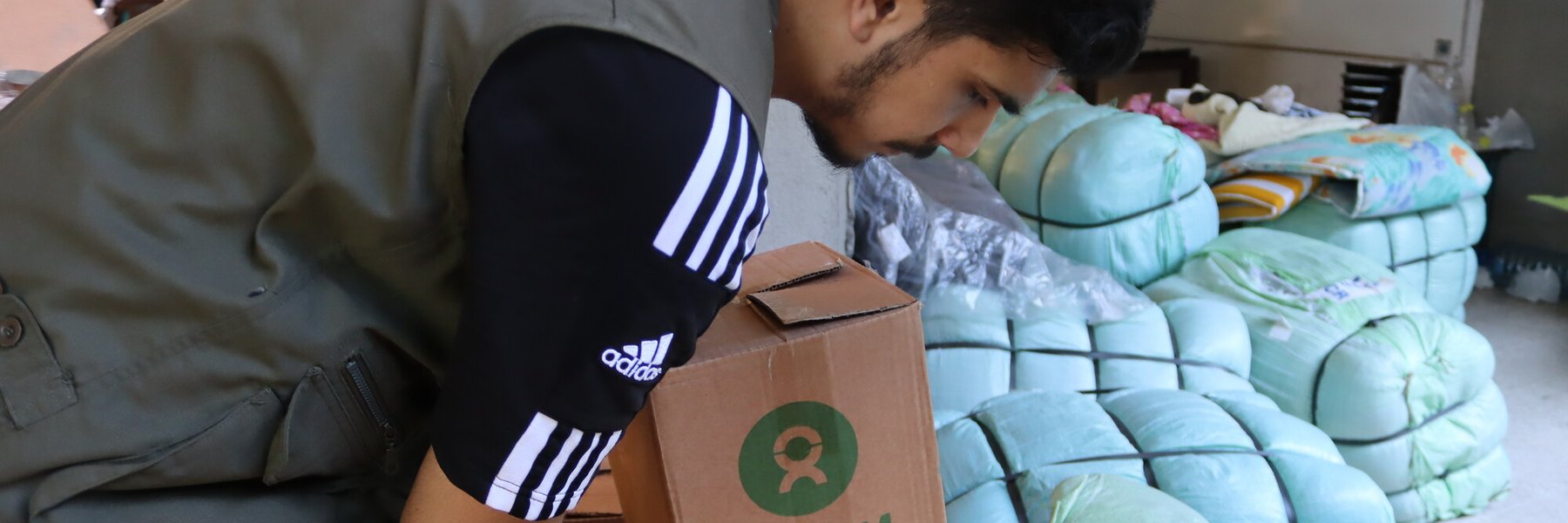Mohammad, an aid worker from Oxfam’s local partner Utopia in north Lebanon distributes hygiene kits to displaced people at a collective shelter. Photo: Fatima Ghemrawi/Utopia for Social Justice/Oxfam

Donate to the Middle East Appeal
Millions of people across Gaza, Lebanon and the wider region are in urgent need of food, shelter and medical care. Please donate now.
What is happening in the Middle East?
What is Oxfam doing to help people in the Middle East?
Duaa Abu Sabha is filling water bottles from Oxfam's water tank, which has been installed in Gaza. Image: Alef Multimedia/Oxfam
The sound of the drones constantly buzzing never leaves us.”
- Duaa Abu Sabha filling water bottles from Oxfam's water tank.
What can you do to help people in the Middle East?
Frequently asked questions
Can I donate items like clothing and blankets to help people in emergencies?
Clothes and blankets are among the many items we can sell in our shops here to raise funds, but Oxfam does not send clothes and blankets overseas, however good their condition.
Often this is not cost effective. Shipping also takes time. What people give today might not be what people need tomorrow. Wherever possible, Oxfam buys items locally or from countries in the affected region. This stimulates the local economy and has a lower environmental impact.
That's why making a cash donation is one of the most effective ways to support Oxfam's emergency work.
Can I volunteer to drive supplies from the UK overseas?
Oxfam does not send volunteer drivers from the UK overseas with supplies. Wherever possible, Oxfam buys items locally or from countries in the affected region. This stimulates the local economy and has a lower environmental impact.
That's why making a cash donation is one of the most effective ways to support Oxfam's emergency work.
We deeply appreciate anyone’s desire to support our work and would love for you to volunteer in one of our shops too. Our shop volunteers include those who have been forced to flee conflict and disaster, so they provide a way to welcome people in our communities.
Please visit our volunteering page to find out more information about the fantastic opportunities we have.